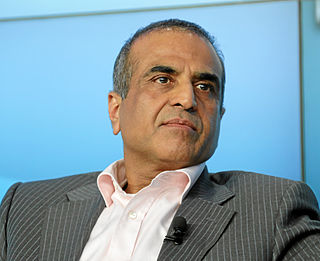Цитата Сунила Миттала
Африка не для слабонервных: там проблемы с инфраструктурой. Средний класс отсутствует в большинстве стран. Мы должны обслуживать нижний сегмент рынка, чтобы расти.
Связанные цитаты
Смерть MG знаменует собой конец одного из самых совершенных продуктов свободного предпринимательства, рожденного из ненасытной воли к успеху одного человека и растущего рынка символов статуса среднего класса. Автомобиль впервые появился как форсированный Morris Oxford в 1923 году, когда он выиграл ралли Land's End Rally.
Чтобы такие страны, как Кения, стали экономическими центрами, им нужна лучшая инфраструктура: дороги, порты, интеллектуальные сети и электростанции. Инфраструктура стоит дорого, и ее строительство занимает много времени. Тем временем хакеры создают «массовую инфраструктуру», используя систему мобильных телефонов для создания решений, готовых к выходу на рынок.
Конкурс «Мисс Америка» — это наиболее совершенный театр в нашей культуре, потому что он так точно отражает то, к чему мы стремимся: низкоклассный ритуал, отточенное переформулирование вульгарности, которое хочет открыть дверь к респектабельности высшего класса посредством простой тревога и амбиции среднего класса.
Чтобы иметь возможность достичь похвальных целей (профилактики и лечения ВИЧ/СПИДа), особенно для нас в странах Африки к югу от Сахары, нам необходимо инвестировать в улучшение наших слабых систем здравоохранения. Серьезную озабоченность вызывает недостаточное количество медицинских учреждений во многих наших странах.
Сразу после бакалавриата я начал выполнять незначительную работу по вопросам здравоохранения в странах Африки к югу от Сахары, и меня поразило то, как люди в Нью-Йорке говорят о некоторых проблемах, с которыми они сталкиваются. В то время, в 2006 году, в средствах массовой информации проводилось несколько крупных кампаний по повышению осведомленности о ВИЧ в странах Африки к югу от Сахары.

































